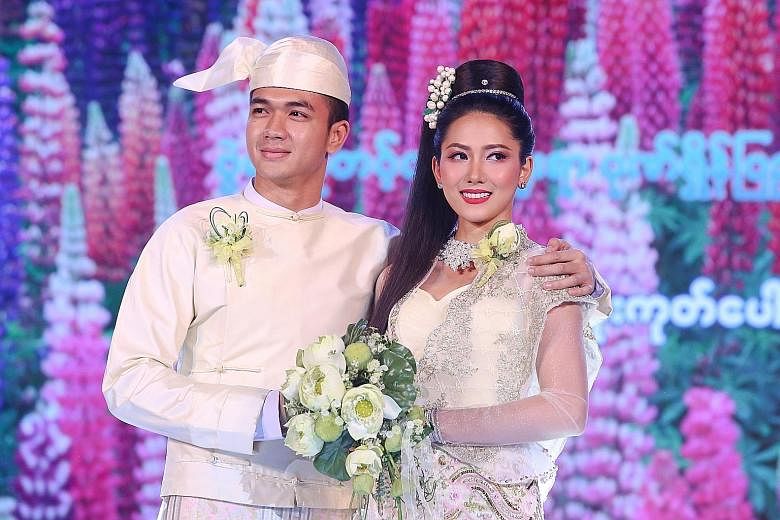YANGON • With Myanmar emerging as a manufacturing hub for mass-produced clothes, a crop of young designers is using home-grown fashion to preserve the country's sartorial heritage and reshape the sweatshop model.
Inside her boutique in downtown Yangon, Ms Pyone Thet Thet Kyaw crafts her own designs using traditional patterns and fabrics, many from ethnic minority groups, to make A-line skirts, dresses and tops.
On one, she adds the high-collared neckline of the inngyi - a tight top usually worn by Myanmar women with a fitted, sarong-like skirt - to a pleated dress.
"When you modernise the traditional patterned clothes, you have to be careful they're not too flashy - or too modern," she said.
Myanmar is fiercely proud of its traditional garb, which was largely protected from the influx of homogeneous Western fashion by the former military junta.
For 50 years, they shut the country off to foreign influences and tightly controlled what was worn in all official media.
Designer Ma Pont said she was not allowed to show even a flash of shoulder or armpit when she used to make clothes for military-controlled TV channels in the 1990s. "We were not really free," she said.
Today, while many still prefer traditional clothes, especially the sarong-like longyi worn by both men and women, fashions are starting to change.
Shopping malls aimed at Yangon's growing middle class are sprouting up around the city, while on its fringes factories are churning out clothes for international brands drawn to its pool of young, cheap labour.
It is a flip side of the industry, which boutique designer Pyone Thet Thet Kyaw has seen first-hand.
As a teenager, she spent months toiling in garment factories - a job that earned her 2,000 kyat (now worth about S$2) a week. The experience made her determined to open her own boutique and train young women in the art of clothes-making to make sure they never suffer the same fate.
"I started to see things, like how you could spend only 10 minutes for your lunch or you could not go to the toilet whenever you wanted because it would disrupt their production line," she said. "If fast and unethical fashion continues, then we're the ones to suffer."
Myanmar is swiftly becoming a new hub for massive garment factories. Exports more than doubled to US$1.7 billion (S$2.3 billion) last financial year, according to official data.
AGENCE FRANCE-PRESSE

